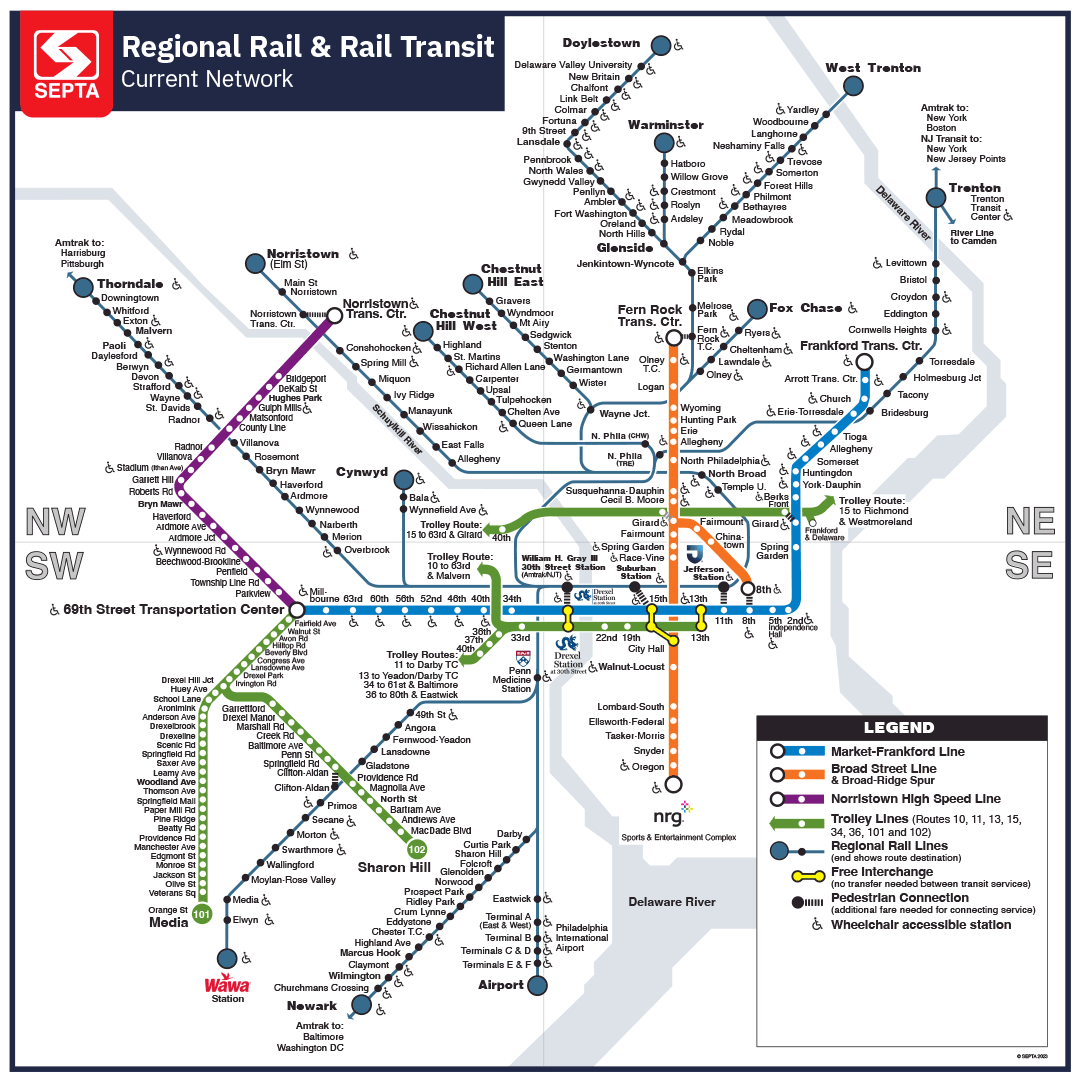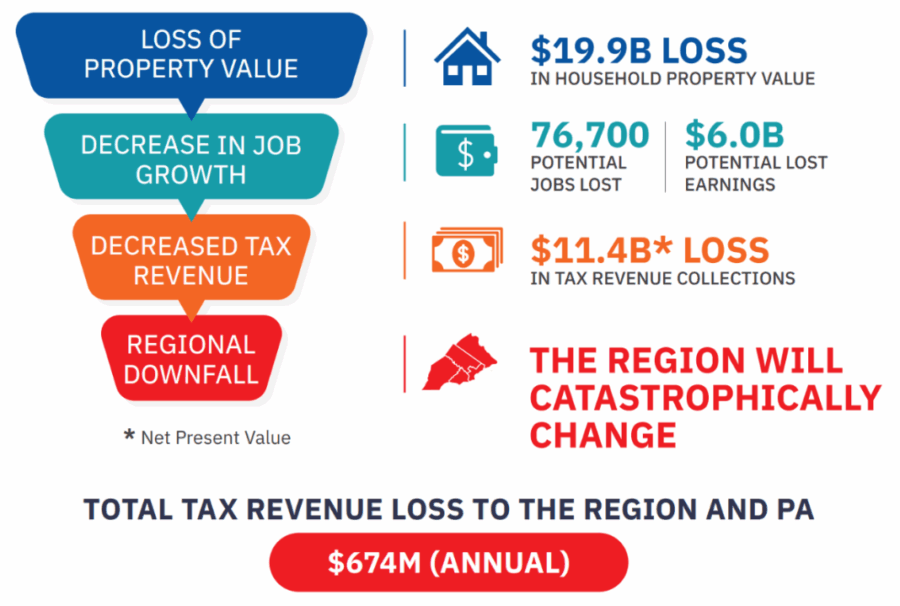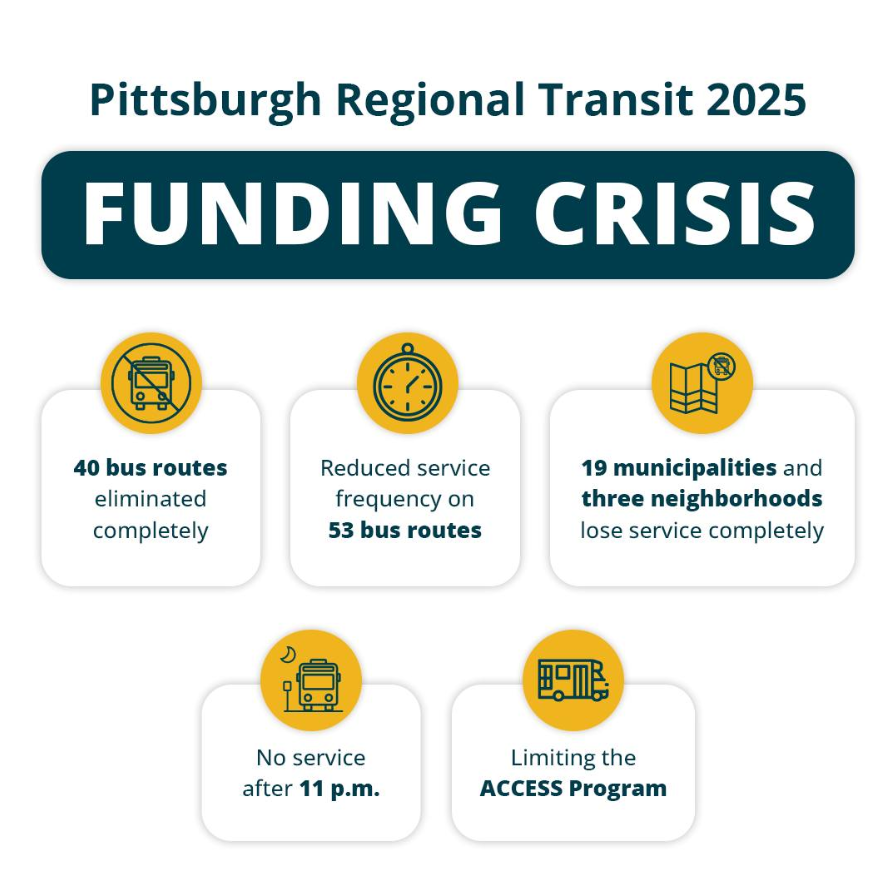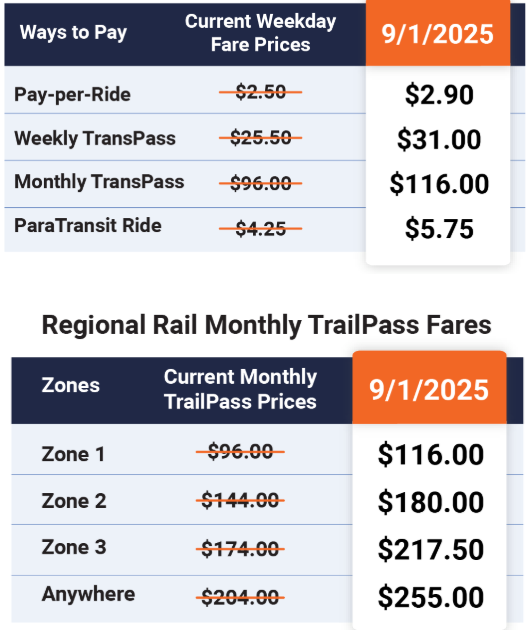
Transit systems across Pennsylvania, including Southeastern Pennsylvania Transportation Authority (SEPTA) in Philadelphia and Pittsburgh Regional Transit (PRT) in Pittsburgh, are facing an existential crisis due to a shortfall in state funding for transit. SEPTA alone faces a $213 million budget deficit that, if
not addressed, will result
in a 45 percent reduction in
service. By January 2026, the agency is looking at cutting 50 bus routes, eliminating five regional rail routes, and stopping Metro and regional rail service at 9:00 p.m. While other parts of the United States are spending billions to build out the kind of transit infrastructure Philadelphia already has today, the region is facing an unprecedented cut in service.
On the other side of the state, Pittsburgh is facing a similar crisis. PRT has a $100 million budget deficit that, if not addressed by July 1, 2025, will result in a 35 percent cut in service and a nine percent increase in fares. Many parts of the region will no longer be served by bus and light rail service if these cuts come into effect.
As the state’s two largest transit providers, SEPTA and PRT are only two of the most dramatic examples of a funding shortfall that will impact providers across the Commonwealth. The root cause comes down to how public transit is funded in the state. Unlike many other places in the country, localities have few ways to raise local funding for transit through things like local-option sales taxes. As such, the state plays an outsize role in funding transit.
So, what can you do to address this crisis? Make your voice heard. Attend public hearings and share your testimony with SEPTA and PRT. Reach out to elected officials across the state to make it clear that transit is essential to Pennsylvania. The Foursquare ITP team will be doing its part to highlight the importance of public transit in Pennsylvania, by communicating the impact service cuts will have on our employees and their communities over the next few weeks. We urge everyone to join us—when many voices unite, they become an unstoppable force for transformation.

(Source: https://wwww.septa.org/fundingcrisis/).
The impact of SEPTA cuts
- The Foursquare ITP team conducted modelling to determine the impact of service cuts on job access, showing that the median household would have access to nearly 20 percent fewer jobs by public transit. A separate analysis by Delaware Valley Regional Planning Commission (DVRPC) found that proposed cuts would
add 275,000 cars to the Philadelphia metro areas roads each day. Econsult Solutions estimates cuts will result in $6 billion in lost economic growth for the Philadelphia region over
30 years.

